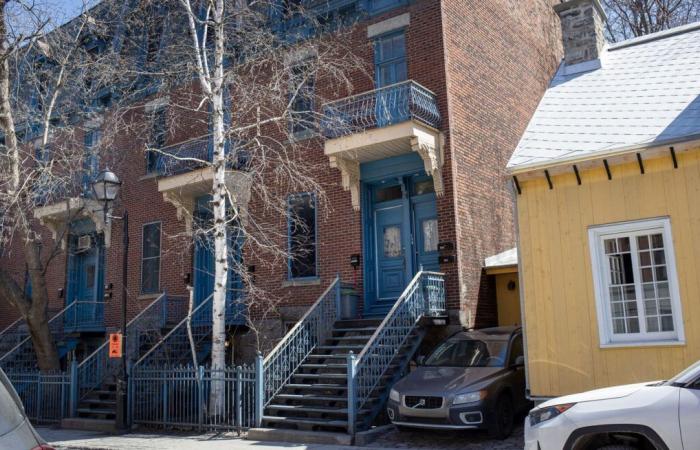The public register of tourist accommodation establishments in Quebec, which will finally be put online by Quebec on Monday, will allow municipalities to be “more agile and faster” in the fight against illegal tourist accommodation. But for Airbnb, the public registry poses a danger to the safety of its hosts. What change does this new tool bring?
The law aimed at combating illegal tourist accommodation, in force since September 2023 and adopted a few months after the fire which killed seven people in a building in Old Montreal, forces digital platforms like Airbnb to verify accommodation numbers. registration and expiration dates linked to a certificate of each ad displayed there. Before Monday, the provision of the Act relating to the public register was still not in force.
For short-term tourist accommodation — less than 31 days — as Airbnb offers, it is the Quebec Tourism Industry Corporation (CITQ) which issues the registration certificate numbers which are mandatory for any operation tourist accommodation.
According to -, the new directory will be accessible free and anonymously — unlike a service like the Quebec Land Registry — and will allow searches by CITQ registration certificate number, by postal code or by municipality.
Users will therefore be able to use the register to verify the legitimacy of registration certificates themselves, but it is mainly in the hands of Revenu Québec inspectors — who are responsible for verifying the legitimacy of certificate numbers — and the municipalities that the register can be “an additional tool,” believes Joé Deslauriers, president of the local municipalities caucus of the Union of Quebec Municipalities (UMQ).
“Intervene more quickly”
“It is a register which gives us almost in real time the portrait of all the tourist departments that we have in the territory, both main residences and tourist residences, lodges, hotel complexes, etc. », Explains the man who is also the mayor of Saint-Donat.
It is particularly the work of the patrols, which have been set up by the municipalities, which will be able to use the register in order to “better control the use of short-term rentals in a given territory, for example”, explains -he.
For “small municipalities which do not have too many resources, not too many staff: with a simple click, we have access to all tourist accommodation. If there is a problem, we are able to intervene more quickly,” adds Mr. Deslauriers.
The latter still deplores the absence of the “count of investigators or inspectors” from Revenu Québec following requests from the UMQ to have “additional inspectors”.
A security problem, according to Airbnb
Although the addresses of establishments are included in the register, according to information from -, the names of establishments or owners will not be included and it will not be possible to search by address.
It is this aspect that bothers Airbnb, which has a policy of only disclosing the exact address of establishments once the reservation is confirmed. “Requiring a public directory including residents’ addresses could potentially endanger the safety of hosts and guests in Quebec,” Airbnb indicates by email.
“Our approach to addresses […] helps guests protect their privacy and security, as well as that of their home, and helps avoid security issues. Our same concerns apply to public registries that require the publication of personal information about a host and their registration address,” the multinational continues.
For Derik Bareil, who operates several short-term accommodation sites through Airbnb, the new directory “changes absolutely nothing”. According to him, the Airbnb platform already acted as a sort of directory with “all the places to rent that are there”.
“If the government deems it useful, good for them. But the fact remains that someone who does illegal short-term rental, if he wants to be effective, he will appear on known platforms, like Airbnb. And municipalities have access to Airbnb,” he adds.
Having one’s address in the new public register also does not worry Mr. Bareil, who explains that with refund and cancellation policies in place, it is already possible for users — or inspectors — to make false reservations in order to obtain this type of information.






